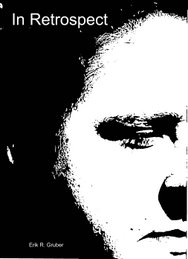I believe in God. I’m mystified by the form and personhood this God may embody and suspect that nobody has it quite right, but in a world that seems to drift further and further away from faith as it embraces science and cultural relativism, I believe that we were created and placed on earth by a higher power. I admit that such a concept is un-provable, and some may call it improbable, but this will not sway me into disbelief. Does that make me unreasonable? I don’t think so.
For me, there are three questions that the non-theist simply cannot answer. These questions are so condemning, so impossible to ignore, that they provide enough evidence for me to believe in the existence of God and establish the necessity of a higher power as an absolute. The first is the cosmological question. Where did matter, and the universe, come from? The second is teleological. Where did human life come from? The third is ethical. If there is no God, why be morally good?
Over the course of the next three days, I’ll address these questions in order.
The first question, the question of where matter came from, has been answered in two different ways by the non-theist. One option that has been proposed is that matter came into existence from nothing. Paul Davies, in his essay “A Naturalistic Account of the Universe,” further expounds this theory. He claims that before the universe came into existence, a great quantum vacuum filled with an enormous amount of energy existed. This energy was created by the repulsive forces working against each other in the vacuum. Eventually, too much energy was created for the vacuum to contain, and thus the “big bang.”
The problem with this argument is that it flies in the face of science. So many rules that scientists hold as immutable must be ignored that I can’t believe that any respectable scientist would buy into the theory. First, we have to assume that at the time of the creation of the universe the law of conservation of energy didn’t apply. This law states that energy can’t be created or destroyed. Once we get past this we still have absolutely no evidence or basis to believe that a great quantum vacuum would just come into existence.
Davies answers this by pointing to the world of quantum physics, where particles behave unpredictably. I’ll grant him this, as I have no reason not to, but I can also say that the realm of science has never seen erratic particles form a great quantum vacuum. If they did it would seem they were actually quite uniform. To continue down this logical thread, erratic particles performing in a uniform fashion would actually seem quite miraculous, and in turn land outside the realm of rational science that Mr. Davies has based his theory upon. Also, if this does explain the origin of the universe, what explains the origin of the particles? Davies does not answer any questions; he just takes the argument one step further down the chain.
The second way that the non-theist has attempted to explain this problem away is by asserting that the universe has always existed. There are three reasons why this could not be the case.
The first is that big bang research (a scientific endeavor) has shown that there was an absolute beginning to the universe as we know it. J.P. Moreland, in his “Kalam Cosmological Argument,” offers us an important feature of the big bang theory: “The universe as we know it began from a large explosion some fifteen billion years ago and has continued to expand ever since.”
The second flaw in claiming that the universe has always existed is that the 2nd law of thermodynamics states that energy in a closed system dissipates over time. This law, accepted by all scientists, maintains that we are continuously moving towards a time when the energy will simply run out. If the universe has always existed, realistically we A) would have run out of energy by now (which we have not), or B) will never run out of energy (which is a scientifically illogical).
It boils down to the problem of infinity, which leads to my third point.
The third proof that the universe has not always existed (which would mean the universe is infinite) is that an actual infinite in the real world is an impossibility, and if there were an infinite, it could not be traversed (I’ll get to this).
The first point, the existence of an actual infinite, presents us with a logical paradox. Philosopher Bertrand Russell offered a good example with his use of Tristam Shandy, the infinite author. Tristam sets out to write his autobiography, but it takes him a year to finish writing about one day of his life. If he lived to infinity, he would have no trouble finishing his book, because he would have infinite years to write. At the same time, he could never finish because each day he would get further behind. He could never finish, but he would never not finish.
The second point to this argument, that it is impossible to traverse an infinite, is basically saying that if the universe exists on an infinite timeline it would be impossible to place anything on that timeline. Let’s say that the universe has existed for infinite years, then how long have humans existed? For half that time? This would still be infinity on an infinite timeline, meaning that humans have also existed for infinite years, which we know we have not (and if we have, one would think we’d be much more advanced). When were you born on an infinite timeline? No matter where you place yourself, you would be infinite years old. Are you infinity? Speaking for myself, I would hope that if I were infinite years old I would be a hell of a lot smarter. Then maybe I would just know the answers, making this essay completely unnecessary.
Tomorrow, we’ll talk about the origins of human life. Till then…
Thanks for reading.
Subscribe to:
Post Comments (Atom)


















6 comments:
WOW! I agree Gruber.
To me, all scientist that argue the big bang theory, or any other origin of the universe are in the same boat that we have said Christians find themselves arguing in sometimes. That is starting with conclusion and trying to find anything to back it. For them it is that the existence of a supernatural power cannot be possible. They will not believe it no matter how big the evidence is for it.
There are so many examples in this universe of how impossible it would have been for all that we know to have just happened by chance. All of these point to the existence of a higher power that intentionally created it. To me (and I feel like to everyone) the evidence is overwhelming, but they are set in there mind that a higher power is not possible so they will look for alternate ways to explain everything even if the ways are not logical (as Gruber was discussing).
Yes, I know that Christains are guilty of this too, for example the people who try to say that the earth is 6000 years old, no more, no less. There just isn't evidence to back that. Yes there are more examples of this too, but I just feel like if they call Christians to look at the evidence then they need to also consider the evidence outside of their beliefs.
With all that said I try my hardest to step out of my beliefs when dealing with stuff like this. I have heard all the theories and everything and as much as we are told there is no "proof" for God, there is definately isn't any "proof" that there isn't a God. So for fairness sake, if neither side can't prove either way, then why not default on the side of believing?
Great post Grubs.
I definetly feel the same about the arguments you laid out. For me there is just not enough evidence to prove through science the origins of the earth. Although i can't prove God, it seems to me to be the most logical of all possibilities when refering to the origins of the earth.
Going back a to the last post. I also am a strong believer in God and although i was brought up in a Christian household it dosn't mean i haven't had my struggles and doubts. Many times i have questioned God's existance, but every time i have questioned it I have been given the answers i need to realize that God does exist and He's walking with me everyday.
And although i cannot prove without a shoddow of a doubt that he exists, i know that in the end i would rather take the chance and live a Christ like life, being nice to people, maybe refraining from some worldy activities, and die and just be dead; than to live a life unworthy to God and not believing in Him and end up in Hell.
Also, I don't believe there is anything wrong with searching out the truth, which i think is something we all should do, but i just don't think that life is worth living without something to live for. I don't want to live life to end us as just a dash, as Pastor Bob Merritt explains it (1983 - ?, you know the dash), to me it just seems too meaningless.
I agree with you P Corcs. At the end you said, "Why not default on the side of believing?" Another reason I DO support this question is the fact that believing in a higher power gives a person hope and reason worth living for. Why not believe that? What are you living for if you don't believe in a God?
I know it is easy to say for me and hard to believe for others and I don't know all the answers by any means. But I have wondered the same question as PC.
All good thoughts dudes...One of the reasons for these proporstorous hypotheses is that Christians should be much smarter with their creation stories. Much of the scientific theory on the origins of the universe are mostly a response and refutation to the rediculousness of the options for creation.
When the church accepts things as foolish as the earth was created in 6 days and is only 6000 years old, you can easily see how there would be a disagreeing reaction. Again I think we have a case in which bad theology has made fools of the church.
Secularists are simply doing their best to reply to this theistic foolishness. Don't get me wrong, I'm not implying the falsehood of Genesis. I am just implying that for centuries, Christians have been reading the book with a sceintific agenda when it actually speaks nothing toward science.
Can't wait for the next blog Zot...
Gruber, you rapscallion! I was actually intending on writing a post very similar to this, but with far less academic accountablity. Yes, I too was going to provide the only two possiblities for the origin of "everything" and that was actually going to be my main reason for being an agnostic, as opposed to an atheist. Looking at this question, it shows that there must be something beyond, something we can't comprehend. It might be a mathamatical property, it might be God. Of course, I don't know.
This is totally unfair to your position, so I don't direct this at you specifically, but I do think this quandry exists a long, long way from any idea of an intervening God.
Post a Comment